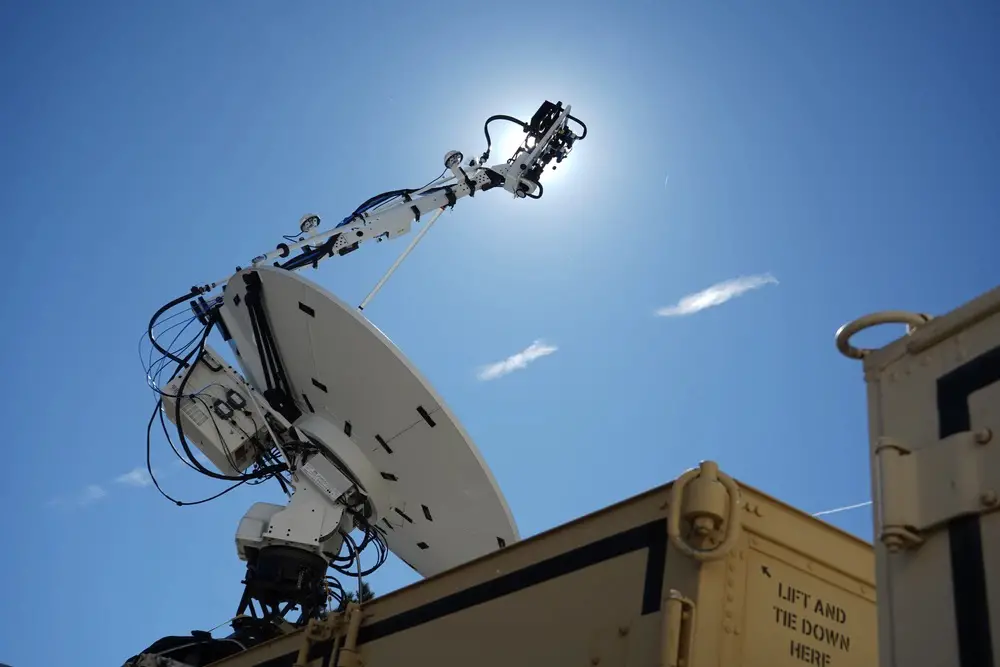Space Training and Readiness Command (STARCOM) recently conducted a test of the Remote Modular Terminal (RMT), a new system for the Space Rapid Capabilities Office. The RMT is a small form-factor system designed to be fielded in large numbers at low-cost and operated remotely – increasing the capacity, adaptability, and resiliency of the system while keeping Guardians out of harm’s way. The recent test is the first time the system has been fielded at two geographically separated locations and controlled from a third, emphasizing its operational flexibility.
“This event demonstrates the Service’s new vision for integrated developmental and operational test to provide more relevant capabilities to Guardians faster. Specifically, this capability will unlock the scale to provide counterspace electronic warfare capability to all of the new Space Force components globally,” said U.S. Space Force Lt. Col. Gerrit Dalman, 25th SRS commander.

The test was supervised by Delta 12’s 4th Test and Evaluation Squadron and targeted key performance metrics such as system latency and target engagement accuracy, with scenarios provided by Delta 11’s 25th Space Range Squadron (25 SRS). In addition to testing system performance, the 25th SRS’s “closed loop” range environments enabled U.S. Air Force partners to conduct a Cyber Vulnerability Penetration Assessment to ensure the remote connections were secure.
Space Training and Readiness Command (STAR Command or STARCOM) is the United States Space Force’s education, training, doctrine, and test field command. It is headquartered at Peterson Space Force Base, Colorado. U.S. Space Force as an independent service, the Space Training and Readiness Delta (Provisional) was activated on 24 July 2020 under Space Operations Command to begin preparing the groundwork for STARCOM’s activation as the Space Force’s third field command on 23 August 2021.
















